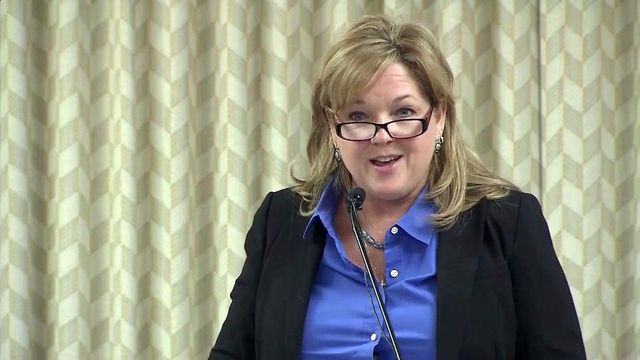Innocence advocate: Exoneration process moves too slowly
The state's top advocate for people who were wrongly convicted of crimes told North Carolina lawmakers on Tuesday that they need to streamline the system that she helped put in place to free them.
Posted — UpdatedChristine Mumma, executive director of the nonprofit North Carolina Center on Actual Innocence, said the state Innocence Inquiry Commission needs to work more quickly to free people who've been proven to be wrongly incarcerated.
Mumma helped write the 2006 legislation that created the commission, the first of its kind in the nation. When the process was first set up, it was full of fail-safes and redundancies to bolster public confidence.
Nine years and nine exonerations later, however, she said the process moves too slowly. Lawmakers should consider changes to reduce the commission's caseload and speed up its handling of exonerations, she said.
"What's important once there's evidence of innocence is to get that person home as an innocent man, because after 10, 20, 30 years, their innocence is all they have left. That's what they're holding on to," Mumma told members of a Joint Legislative Oversight Committee on Justice and Public Safety subcommittee.
She said she has three cases that have been before the Commission for four years with little progress. While cases are before the commission, those inmates cannot use other methods to argue their innocence. Another example she offered was that of 70-year-old Joseph Sledge, who was exonerated last year after 37 years in prison for a double murder he didn't commit. It took 18 months for the Innocence Commission to free him.
The exoneration process should be streamlined when advocates and prosecutors agree someone has been wrongly convicted, Mumma said, and advocates shouldn't be required to find the real perpetrator of a crime before someone wrongly convicted can be set free.
Related Topics
• Credits
Copyright 2024 by Capitol Broadcasting Company. All rights reserved. This material may not be published, broadcast, rewritten or redistributed.






